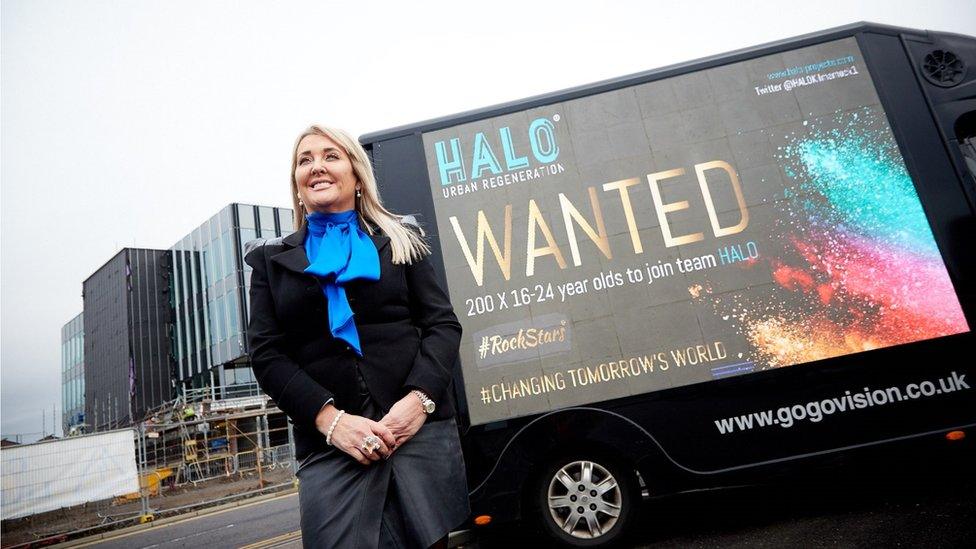Plans to recruit 'digital army' of young people
- Published

Halo boss Marie Macklin says there could be opportunities for up to 500 young people a year
Plans to recruit a 200-strong "digital army" of young people have been announced by a Scottish urban regeneration project.
The Kilmarnock-based Halo project, external aims to train 16 to 24-year-olds in digital and cyber skills and techniques when it opens its doors in May next year.
Participants in the digital course will undertake six months of training and work experience.
It will be backed by £1.5m from the UK government's Kickstart scheme, external.
The course will be run from an enterprise and innovation hub, which is currently under construction.
Those behind the scheme hope participants who complete the course will be able to enter a further six-month work placement with a range of companies, including ScottishPower, Barclays plc and Anderson Strathern.
All 200 young people who take part in the course will be paid for a minimum of 25 hours per week.
Project 'vision'
The Halo Urban Regeneration Company executive chairwoman Marie Macklin said she believed the project could create opportunities for up to 500 young people a year at The Halo.
She added: "My vision is for The Halo to create a cyber/digital army of young people who will gain the skills necessary to go out into the UK's businesses, third sector and public sector organisations to fight the ever-increasing number of cyber criminals who are threatening this country."
Scotland Office Minister Iain Stewart said: "We are pleased to be working with Halo Kilmarnock to offer 200 young people from across Scotland the opportunity to develop the latest digital skills.
"The digital tech sector is one of Scotland's biggest success stories and will make a vital contribution to economic recovery from Coronavirus."
The Halo Kilmarnock is a £63m brownfield urban regeneration project which aims to "support the growth and resilience of the Ayrshire economy".
The 23-acre site was gifted to the project after Diageo closed down its bottling plant in the town in 2012.